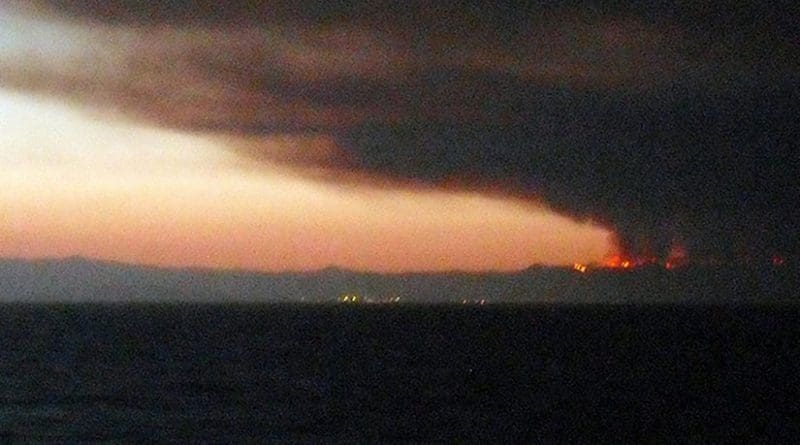Climate Change To Hit Mediterranean With More Forest Fires
By EurActiv
(EurActiv) — Climate change means the risk of forest fires will skyrocket in Mediterranean Europe in the coming decades, according to a new study. Existing fire prevention measures will be inadequate, so a change of strategy will be needed.
The University of Barcelona study, published in the Scientific Reports journal, analysed a number of models related to summer Burning Areas (BA) and the climate indicators linked to them.
Its researchers concluded that “the direct effect of climate change in regulating fuel moisture (e.g. warmer conditions increasing fuel dryness) could be counterbalanced by the indirect effects on fuel structure (e.g. warmer conditions limiting fuel amount), affecting the transition between climate-driven and fuel-limited fire regimes as temperatures increase.”
Accordingly, the risk of forest fires will increase but the effects of climate change on areas prone to burning are not always clear.
The study used the extensive database of the European Forest Fire Information System (EFFIS) and looked at areas that had been exposed to fires during the summer in the Mediterranean basin, when it coincided with drought and certain moisture conditions.
“The study concludes that there is a statistically significant relationship between fires and droughts that happened in the same summer in many areas,” said Marco Turco, a weather conditions researcher at the University of Barcelona and the city’s Supercomputing Centre.
“Additionally, the relationship between drought and fire is stronger in northern areas,” he added and that antecedent climate conditions play a relatively minor role, except in few specific eco-regions.
This means that drought is a more decisive factor and plays a more prominent role in the wetter and more productive northern areas than in the drier southern areas. This is because most vegetation in the south is adapted to having to make do with less water, according to the study.
It predicts that in the coming decades, the northern areas of the Mediterranean will be dominated by direct effects of climate change, rather than indirect effects.
The study also warns that fire prevention efforts could be overwhelmed by the effects of the climate if changes are not made.
In recent decades, areas in the Mediterranean that have been exposed to fire have actually gone down, while instances of drought have indeed increased.
These opposing trends suggest that, so far, management has been doing its job. But Turco insisted that keeping fire prevention measures at their current level might be insufficient to counter future increases in drought.
That is why the study’s researchers have called for current management strategies to be taken back to the drawing board.
Turco explained that the drought-fire models developed in the course of putting together the study can help create a system of seasonal forecasting that could easily complement the strategies that are in place.

